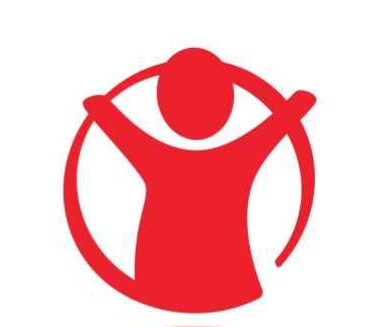CHILD SAFEGUARDING:
Level 3: The post holder will have contact with children and/or young people either frequently (e.g. once a week or more) or intensively (e.g. four days in one month or more or overnight) because they work country programs; or are visiting the country programs; or because they are responsible for implementing the police checking/vetting process staff.
ROLE PURPOSE:
The FSL Coordinator will lead the overall design, planning, implementation, and monitoring of an integrated Food Security and Livelihood (FSL) program focused on improving food security, promoting income-generation opportunities, and enhancing economic resilience in targeted returnee, host, and nomadic Kuchi communities. This role requires strong leadership and coordination to ensure that climate-smart agriculture, value chain development, and livestock-based livelihood interventions are effectively executed in line with project goals, timelines, and budgets. The FSL Coordinator will also ensure that all activities are gender-responsive and conflict-sensitive, with a strong focus on sustainable, inclusive market linkages and resilience building.
SCOPE OF ROLE:
Reports to: Directly to Head of Office and a dotted line to Program Manager based in CO.
Staff reporting to this post:FSL officers
Budget Responsibilities: Applicable
Role Dimensions: The post holder will manage the overall implementation of project, he/ she will establish a good working environment for project team, manage the project team and stakeholders, and provide good relations with rest of Save the Children's livelihood staff as well as with community members where the project is implementing.
KEY AREAS OF ACCOUNTABILITY :
The main areas of accountability and responsibility of this position are, to support the implementation of the FSL component under SC-NL grant over the target province/s.
Key Responsibilities:
1. Project Planning and Coordination:
• Lead the overall planning, and implementation of FSL interventions, including MPCA, value chain development, IGA, climate-smart agriculture, and livestock management.
• Oversee and coordinate the activities of the FSL project team, including officers for value chain, agronomy, and livestock.
• Ensure the integration of climate-smart, sustainable, and conflict-sensitive approaches across all project components.
• Develop and manage detailed work plans, ensuring that project activities are delivered on time, within scope, and on budget.
• Facilitate participatory community planning processes, including natural resources mapping, to identify key areas for intervention.
• Coordinate with local authorities, community leaders, and stakeholders to ensure alignment with local development plans.
2. Team Leadership and Capacity Building
• Provide strong leadership and guidance to FSL project staff, including mentoring, capacity-building, and performance management.
• Ensure that the project team is equipped with the necessary tools, knowledge, and resources to effectively implement FSL activities.
• Conduct regular team meetings to review progress, address challenges, and make adjustments to the implementation strategy as necessary.
3. Program Monitoring, Evaluation, and Reporting
• Oversee the development and implementation of monitoring and evaluation (M&E) frameworks to track project progress and measure impact.
• Ensure that all FSL interventions are regularly monitored, and lessons learned are documented to improve project performance.
• Coordinate with the M&E team to ensure that data is collected, analyzed, and reported accurately and on time.
• Prepare regular progress reports for donors, management, and other stakeholders, highlighting key achievements, challenges, and recommendations.
4. Stakeholder Engagement and Coordination
• Foster collaboration and coordination among key stakeholders, including government authorities, community leaders, local service providers, and other NGOs, to ensure successful project outcomes.
• Promote horizontal and vertical integration across FSL activities, encouraging synergies between different sectors such as agriculture, livestock, and market development.
• Ensure that FSL committees comprising representatives from returnee, host, and Kuchi communities are established and effectively facilitate joint decision-making and planning.
• Represent the organization in relevant forums, working groups, and coordination platforms focused on food security, livelihoods, and climate change.
5. Gender and Conflict Sensitivity
• Ensure that all project interventions are gender-sensitive, addressing the specific needs of women, youth, and vulnerable populations.
• Lead the integration of conflict sensitivity into project design and implementation, ensuring that interventions do not exacerbate existing tensions over livelihood resources.
• Work closely with the team to conduct gender and conflict analyses and adjust project strategies accordingly to promote inclusive, equitable access to livelihood opportunities.
6. Financial and Administrative Oversight
• Work closely with the finance team to monitor project budgets, ensuring cost-effective use of resources and compliance with donor regulations.
• Oversee procurement processes related to project inputs, ensuring timely and transparent acquisition of materials, tools, and equipment for agricultural and livestock interventions.
• Ensure compliance with organizational policies, donor guidelines, and relevant national laws related to project implementation.
BEHAVIOURS (Values in Practice)
Accountability:
holds self-accountable for making decisions, managing resources efficiently, achieving and role modeling Save the Children values
holds the team and partners accountable to deliver on their responsibilities - giving them the freedom to deliver in the best way they see fit, providing the necessary development to improve performance and applying appropriate consequences when results are not achieved.
Ambition:
sets ambitious and challenging goals for themselves and their team, take responsibility for their own personal development and encourage their team to do the same
widely shares their personal vision for Save the Children, engages and motivates others
future orientated, thinks strategically and on a global scale.
Collaboration:
builds and maintains effective relationships, with their team, colleagues, Members, and external partners, and supporters
Values diversity, and sees it as a source of competitive strength
approachable, good listener, easy to talk to.
Creativity:
develops and encourages new and innovative solutions
willing to take disciplined risks.
Integrity:
honest, encourages openness and transparency; demonstrates highest levels of integrity




